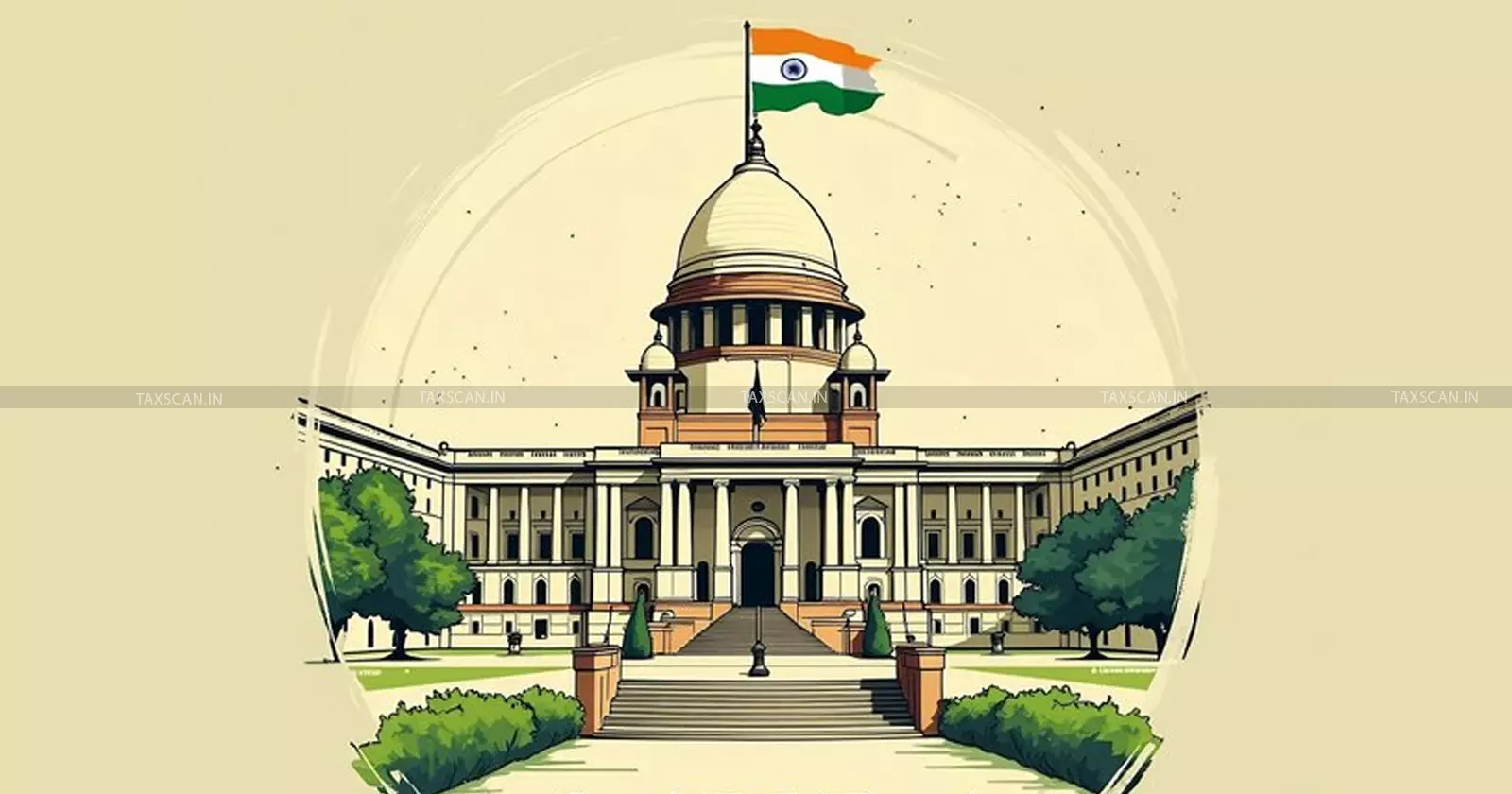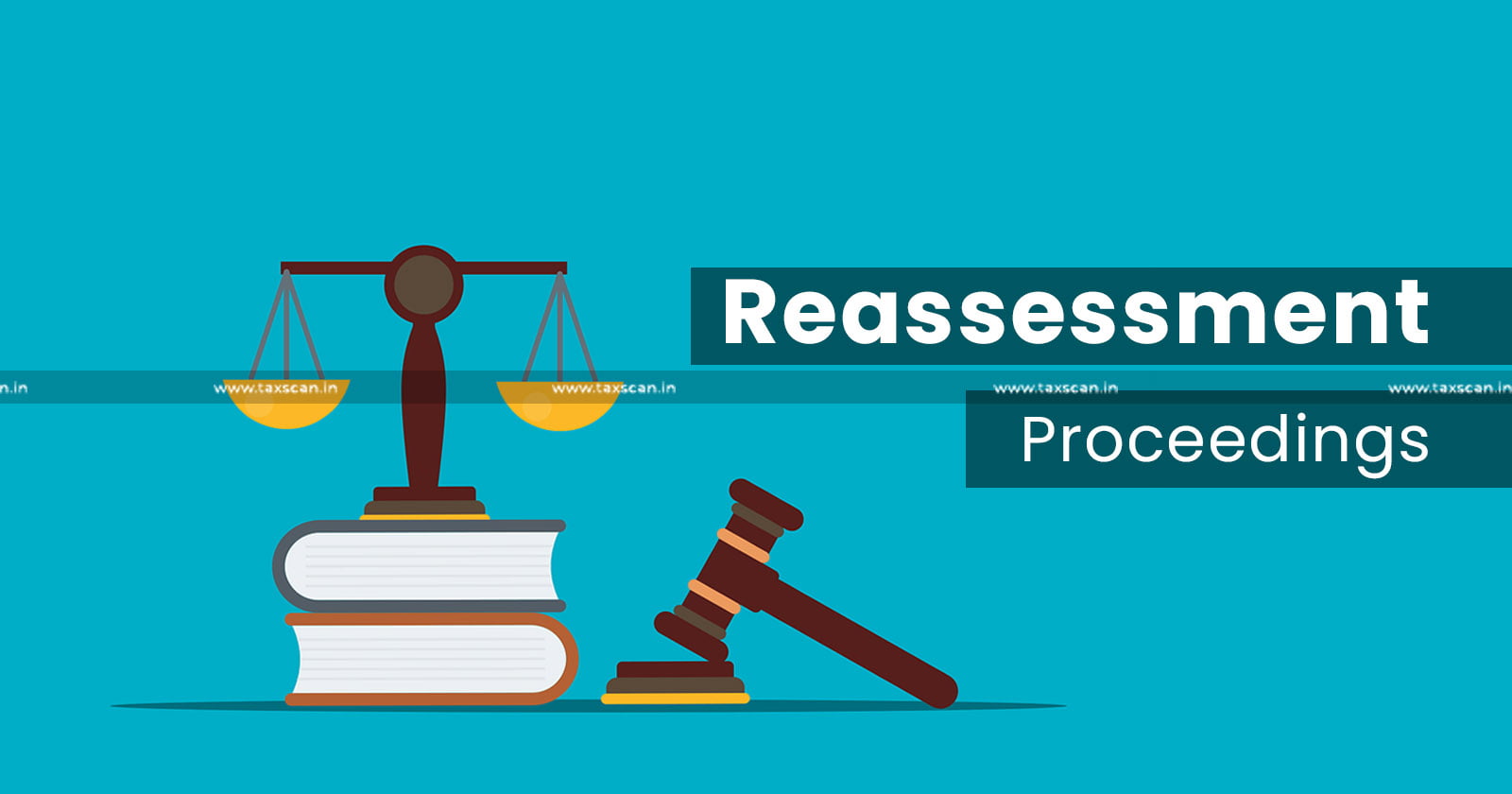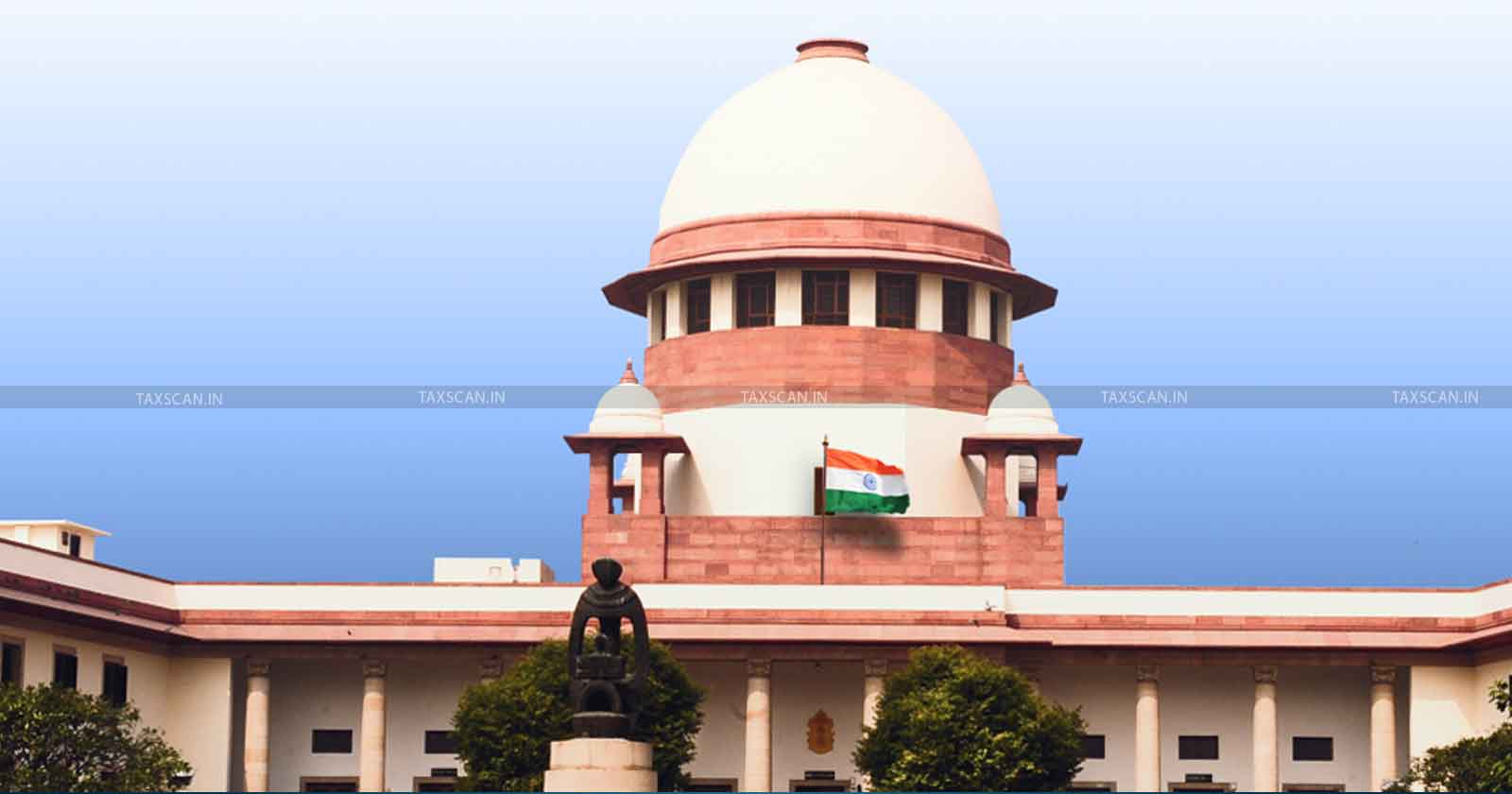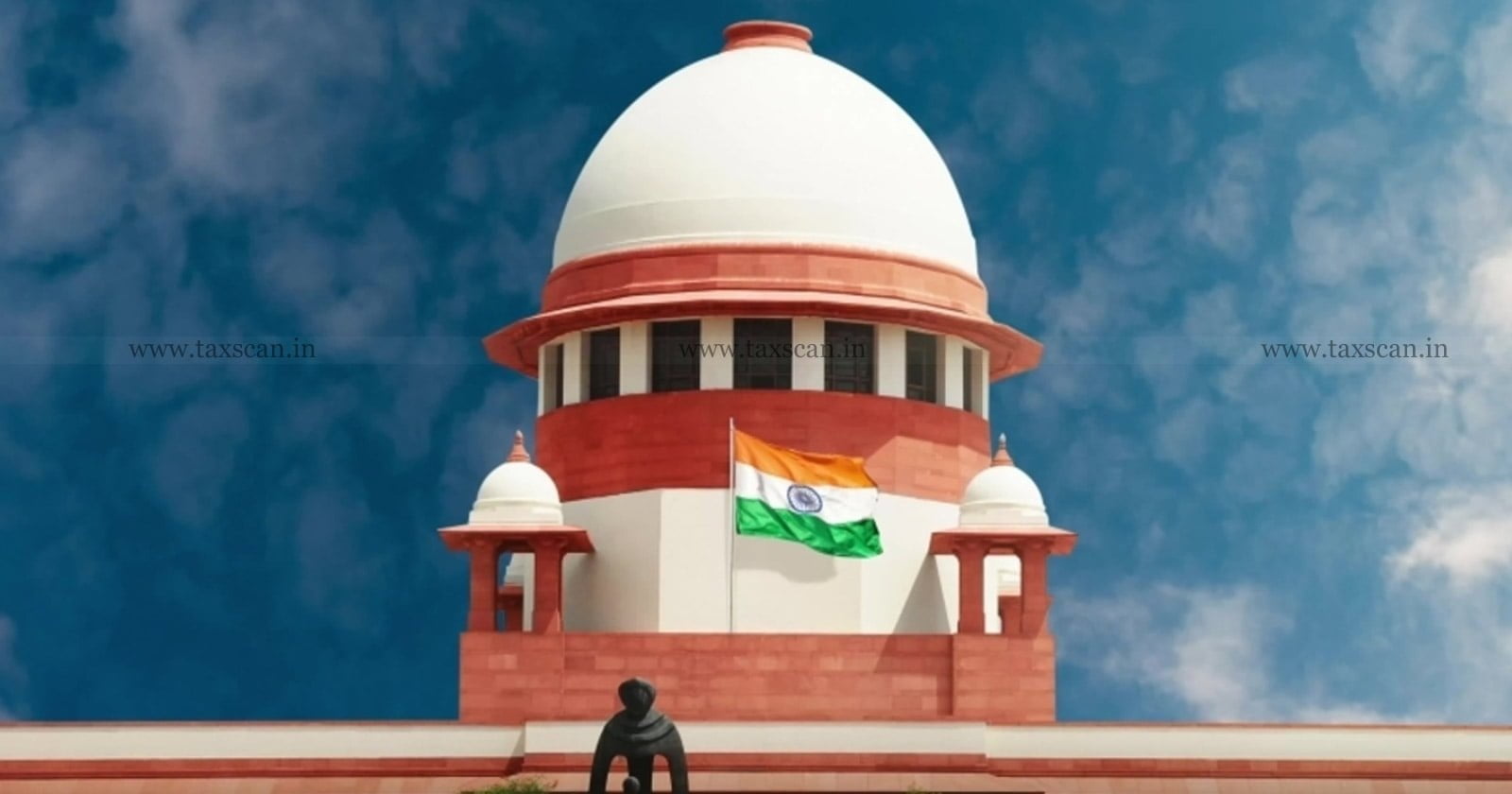Union of India vs. Rajeev Bansal: Supreme Court on Reassessment Limits and TOLA Extensions
The Supreme Court in Union of India v. Rajeev Bansal held that from 1 April 2021, the reassessment notices must follow the Finance Act 2021 regime, and TOLA extensions cannot revive the repealed provisions of the old law

In the world of tax litigation, some cases quietly resolve at the assessment desk itself, while others travel through layers of appeals before fading into the archives. But once in a while, a dispute emerges that reshapes the rules of the game.
This was one such case.
What began as a simple question about the validity of a reassessment notice issued to the taxpayer, Rajeev Bansal evolved into a national test of how far the government could flex the law when faced with extraordinary events like the COVID-19 pandemic.
The matter brought into direct conflict within the three pieces of legislation, that is, the Income Tax Act, 1961, the Taxation and Other Laws (Relaxation and Amendment of Certain Provisions) Act, 2020 (TOLA), and the Finance Act, 2021.
On one side stood the Union of India and its revenue machinery, insisting that the extensions granted during the pandemic allowed them to proceed under the old reassessment regimes and on the other side stood Bansal, contending that the new law, with its stricter timelines, applied from 1 April 2021 and that the old provisions were now a thing of the past.
In Union of India v. Rajeev Bansal (2024), the Supreme Court challenged a question that lay at the intersection of pandemic-era relaxations and a freshly renovated tax regime. The case tested whether reassessment notices, issued after the Finance Act, 2021, had replaced the old provisions of the Income Tax Act. It could still take shelter under the extended timelines granted by the TOLA.
For the Revenue, the issue was about preserving its powers during extraordinary times. For the taxpayer, it was about ensuring that the limits set by Parliament could not be stretched beyond their lifespan.
 Also Read:Income Tax Reassessment Proceedings: SC Instructs AO to Dispose of Objections as per Law Laid Down in Rajeev Bansal Case [Read Order]
Also Read:Income Tax Reassessment Proceedings: SC Instructs AO to Dispose of Objections as per Law Laid Down in Rajeev Bansal Case [Read Order]
Limitations and Jurisdiction in Income Tax Reassessment under the Amended Act and TOLA Extensions
The law of reassessment in income tax is not just about the power to reopen an assessment, it is equally about when that power can be exercised. The limitation periods mark the boundary lines of jurisdiction, when it is crossed, the authority to act simply ceases to exist.
Before April 2021, the framework under Sections 147 to 151 of the Income Tax Act allowed the Assessing Officer to issue a notice within four years in ordinary cases, or even up to sixteen years in special cases involving foreign assets. This was the “old regime” that revenue authorities had long relied upon.
Then came the COVID-19 pandemic, which brought not only public life but also administrative processes to a standstill. In response, Parliament enacted the Taxation and Other Laws (Relaxation and Amendment of Certain Provisions) Act, 2020, which is better known as TOLA. This law effectively pressed “pause” on limitation clocks, extending deadlines for actions that would have otherwise expired during the pandemic. Through successive notifications, the window was kept open until 30 June 2021.
But the landscape shifted dramatically with the Finance Act, 2021, which took effect on 1 April 2021. Parliament did not merely twist the reassessment procedure, but substituted the old provisions entirely.
The new regime shortened the general limitation period to three years, allowed reopening beyond three years only in cases involving income of fifty lakh rupees or more represented in the form of an asset, and introduced Section 148A, requiring a prior opportunity of hearing before issuing a notice.
The collision was inevitable. Revenue authorities, armed with TOLA’s extensions, believed they could still issue notices under the old law up to 30 June 2021. Taxpayers argued that from 1 April 2021 onwards, the only operative law was the new regime, and TOLA could not breathe life into provisions Parliament had replaced.
The dispute thus became a question of jurisdictional timing: Could the pandemic’s extended deadlines preserve the power to act under a repealed framework, or did the new law shut that door for good?
 Also Read:Supreme Court Disposed of SLP Relying on ‘Union of India & Ors. vs. Rajeev Bansal’, Upholds Validity of TOLA [Read Judgement]
Also Read:Supreme Court Disposed of SLP Relying on ‘Union of India & Ors. vs. Rajeev Bansal’, Upholds Validity of TOLA [Read Judgement]
Facts of the Case
Rajeev Bansal had duly filed his return of income for Assessment Year(AY) 2013–14. Many years later, the tax department claimed to have information suggesting that certain income had escaped the assessment.
On 30 June 2021, a reassessment notice arrived on Bansal’s desk. It was issued under Section 148, but under the pre-amendment provisions. By this date, however, the Finance Act, 2021 had been in force for three months, entirely rewriting the rules for reassessment.
The department’s justification was that the original time limit to issue the notice would have expired during the pandemic period covered by TOLA.
TOLA extensions, along with notifications dated 31 March 2021 and 27 April 2021, pushed the deadline to 30 June 2021. Therefore, they argued, the old provisions were still in play until that date.
Bansal disagreed. He maintained that once Parliament had replaced the reassessment provisions from 1 April 2021, the old law was gone. Any notice issued thereafter had to comply with the new Sections 147–151, including the stricter three-year limitation and the requirement of a Section 148A pre-notice enquiry.
Issues
Two key questions were placed for determination before the Supreme Court:
- Whether the reassessment notices issued after 1 April 2021 are governed by the old provisions merely because of TOLA extensions?
- Whether TOLA has the effect of overriding the limitation framework under the Finance Act, 2021 and preserving the old law’s applicability?
Arguments Before the Court
Petitioner’s Argument
Bansal’s position was stuck on the principle of substitution. The Finance Act, 2021, had not merely amended the old provisions, but it had replaced them entirely. From 1 April 2021 onwards, the only operative law for reassessment was the new regime.
The assessee contended that the validity of a reassessment notice must be tested against the law in force on the date it is issued. On 30 June 2021, that law was the Finance Act, 2021 regime and TOLA was a temporary measure for extending deadlines, not a device to resurrect provisions Parliament had consciously removed.
Even under the new law, if a notice was already time-barred under the old regime, it could not be issued, and allowing the Revenue’s view would give the repealed provisions a “second life” without express legislative intent.
Respondent’s Arguments
The Union of India’s stance rested on the extraordinary circumstances of the pandemic and the saving effect of TOLA.
They argued that TOLA and its notifications explicitly extended timelines for various actions, including reassessment notices. These extensions were valid and binding even if the underlying provision was later amended, and it was enacted to protect the Revenue’s ability to act despite pandemic disruptions. A contrary view would cause significant revenue loss and defeat the purpose of the legislation.
The Finance Act, 2021, should be read in harmony with TOLA so that both can operate without nullifying each other.
Analysis
The division bench comprising Justice Dr Dhananjaya Y Chandrachud, Justice J B Pardiwala and Justice Manoj Misra began by tracing the legislative journey. They noted that Parliament had substituted the old reassessment provisions with an entirely new scheme from 1 April 2021. The nature of substitution, as settled in precedent, is that the old provision is repealed and replaced, not kept alive in parallel.
While TOLA undoubtedly extended timelines during the pandemic, the bench emphasized that notifications under TOLA could not override a later Parliamentary enactment. Once the Finance Act, 2021 came into force, it was the sole source of authority for issuing reassessment notices.
The Court also rejected the argument that TOLA extensions impliedly saved the old regime. Saving a repealed provision requires express legislative intent, which was absent here. The notifications merely extended time; they did not “freeze” the old legal framework into the future.
Importantly, the Court reinforced that limitation is not a mere procedural technicality, but it is a jurisdictional threshold. Issuing a notice beyond the permissible period under the governing law strips the authority of the jurisdiction to act.
Decision
The Supreme Court delivered a firm answer that once Parliament had substituted the old reassessment provisions with effect from 1 April 2021, they ceased to exist for future actions. From that date onwards, any reassessment notice had to comply with the new regime introduced by the Finance Act 2021.
TOLA’s pandemic extensions, the Court held, could not be used to “revive” or carry forward the repealed provisions beyond their life, however TOLA still continued to operate to extend deadlines for actions that fell due between 20 March 2020 and 31 March 2021. Extensions could postpone deadlines, but they could not preserve a legal framework that Parliament had consciously replaced.
The Court emphasised that limitation is not a procedural formality but a jurisdictional bar, but if a notice is issued outside the permitted time frame under the governing law, the authority to issue it simply does not exist.
Applying this to the case, the notice issued to Rajeev Bansal on 30 June 2021 under the old Section 148 was without jurisdiction. It failed to meet the requirements of the new provisions, including the shorter limitation and the procedural safeguard of Section 148A.
 Also Read:TOLA applicable to Income Tax Act beyond previously specified date: Supreme Court [Read Judgement]
Also Read:TOLA applicable to Income Tax Act beyond previously specified date: Supreme Court [Read Judgement]
Future Impact and Extension
The Rajeev Bansal ruling is more than a technical victory for one taxpayer, it is a signpost for how reassessment law will operate in the post–Finance Act 2021 era.
For taxpayers, the message is clear that once Parliament changes the law, its protections and limitations take effect immediately. The government cannot lean on old provisions that have been replaced, even in the name of extraordinary circumstances like a pandemic. This means greater certainty, no surprise resurrection of repealed rules through administrative circulars or extensions.
For the Revenue, the decision is a cautionary reminder. Limitation is not a deadline that can be shifted at will; it is a hard boundary defining the very jurisdiction to act. Any attempt to bypass these limits risks having the action struck down, no matter the intention behind it.
The judgment also signals how courts may handle future conflicts between special “extension laws” like TOLA and substantive changes made by Parliament. Unless Parliament expressly says that old provisions will survive, the courts are likely to treat them as having been completely replaced.
In short, the decision draws a bright line that TOLA can pause a clock, but it cannot turn it back to a time before the law changed.
The Delhi High Court in Kanwaljeet Kaur v. ACIT (2025) clarified how to compute the "surviving period" for reassessment. It explicitly relied on Rajeev Bansal and Ashish Agarwal, holding that periods from 20 March 2020 to 30 June 2021 (TOLA extension), the stay period, and the assessee’s response time must be excluded when calculating limitation. Notices issued beyond that adjusted period are time-barred.
The Gujarat High Court in Saroj Predhiman Kaw v. DCIT (2025) struck down a Section 148 notice issued on 15 July 2022. The Court found that notice exceeded the "surviving period" permitted post Ashish Agarwal and Rajeev Bansal, declaring that any delay beyond the adjusted time renders reassessment void.
In Late Shri Rafiq AhmedQuerashi vs Central Board Of Direct Taxes, the Rajasthan High Court recently ruled, referring to the Supreme Court decision in Union of India & ors. Vs. Rajeev Bansal (2024) to hold that a reassessment notice under Section 148 of the Income Tax Act, 1961 cannot be issued beyond the permissible statutory limitation.
Conclusion
The Rajeev Bansal decision is a clear reaffirmation of a timeless legal truth that, when Parliament draws a line, even extraordinary circumstances cannot shift it. By holding that the Finance Act, 2021’s new reassessment regime applied from 1 April 2021 without exception, the Supreme Court shut the door on attempts to extend the life of a repealed law through administrative timelines.
For taxpayers, the ruling offers certainty and restores faith that limitation periods are more than technicalities, as they are safeguards against open-ended power. For the Revenue, it serves as a reminder that jurisdiction is earned through compliance with the law as it stands, not as it once was.
In essence, the judgment draws a bright boundary: TOLA can pause a ticking clock, but it cannot turn it back to an era the law has left behind. The Court’s message is unambiguous that once the law changes, so must the way we measure both time and authority.
Support our journalism by subscribing to Taxscan premium. Follow us on Telegram for quick updates


